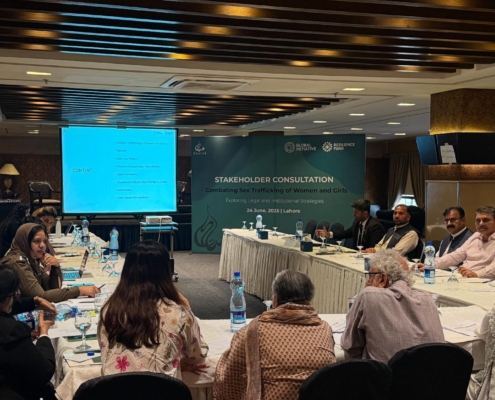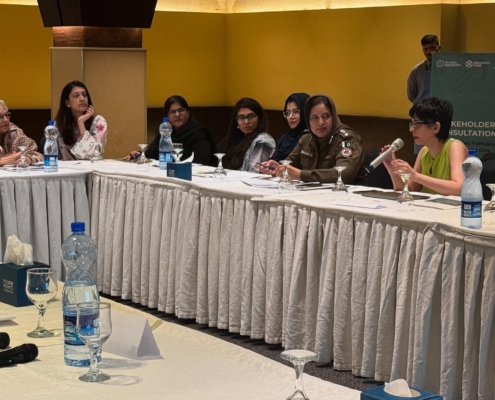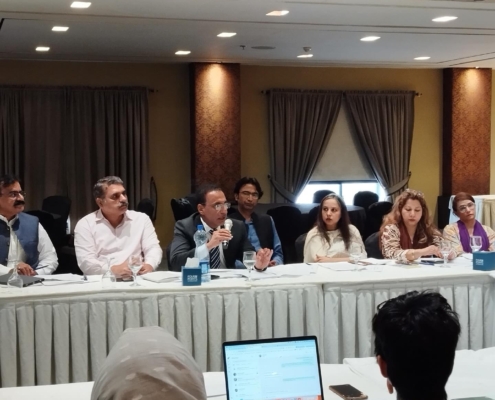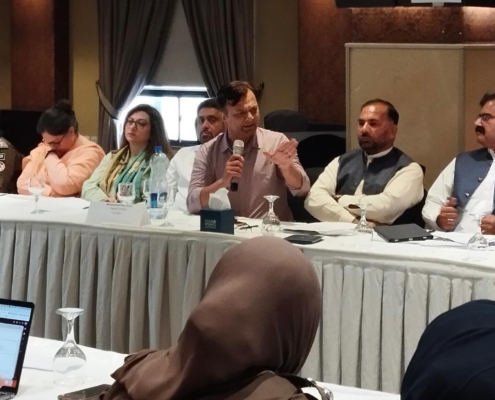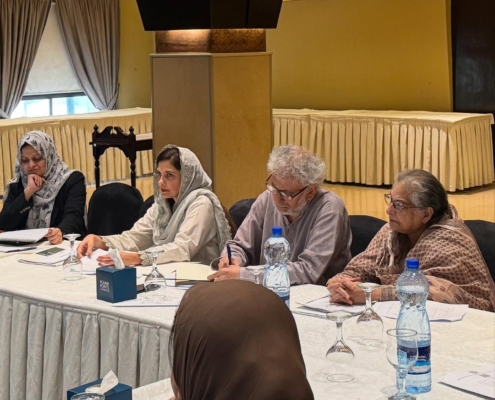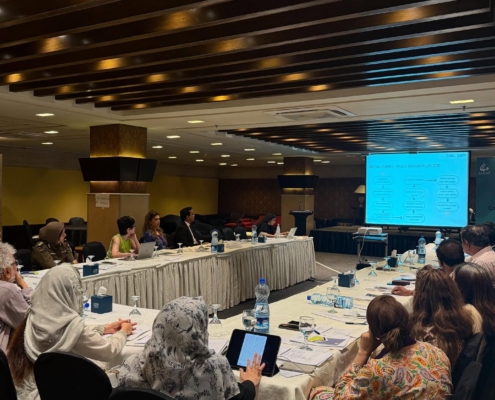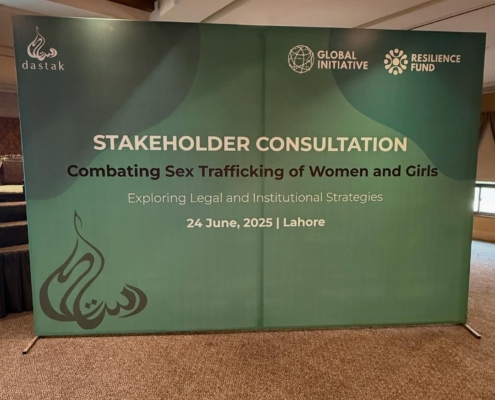Stakeholder Consultation on Combating Sex Trafficking of Women and Girls – Exploring Legal and Intuitional Strategies 24 June 2025
This consultation was convened under the project Exploring Legal and Social Strategies to Combat Trafficking of Women and Girls, supported by the Resilience Fund. The project seeks to identify and address the structural and operational challenges in the prevention and prosecution of human trafficking, particularly in cases involving women and girls.
The consultation aimed to:
- Identify Challenges in how trafficking is currently addressed in Pakistan, especially for women and girls.
- Strengthen Coordination between police, courts, policymakers, and support services.
- Strengthen Implementation of TIPA 2018: Gather practical feedback to support more effective application of the law.
- Build Consensus for Joint Action: Establish agreement on joint interventions across key institutions.
- Create a Centralized Resource Space: Contribute to a shared platform for legal references, referral pathways, and best practices.
The consultation brought together 25 stakeholders representing a diverse cross-section of actors, including:
- Senior officials from the Punjab Police, Federal Investigation Agency (FIA), and Prosecution Department
- Convener of the Special Committee on Human Trafficking – Punjab Provincial Assembly
- Legal aid organizations and public interest litigators
- Shelter home staff and psychosocial support providers
- Journalists and digital governance actors
- Academics and GBV researchers
Key Recommendations emerging from the consultation included:
- Develop a stakeholder reference guide clearly explaining roles, responsibilities, and survivor pathways under TIPA 2018.
- Create a formal coordination mechanism, such as an inter-agency taskforce to improve communication across institutions and levels (provincial, federal).
- Ensure early survivor support, including trauma-informed intake, psychosocial care, and access to identity documentation.
- Nominate institutional focal persons in relevant institutions for trafficking cases.
- Integrate TIPA and SOM training into capacity-building programs, especially around legal definitions and procedural distinctions.
- Improve enforcement strategies by training police to trace and freeze traffickers’ assets and financial channels.
- Launch awareness campaigns for law enforcement personnel, especially first responders, to recognize signs of trafficking and refer appropriately.
- Digitize and track institutional data on trafficking cases to identify patterns and monitor outcomes.
- Promote legal reform to resolve contradictions between PPC, TIPA, and SOM, ensuring victim rights are at the center of enforcement and prosecution.
- Involve survivors and grassroots organizations in shaping response mechanisms that reflect the realities of trafficking on the ground.

